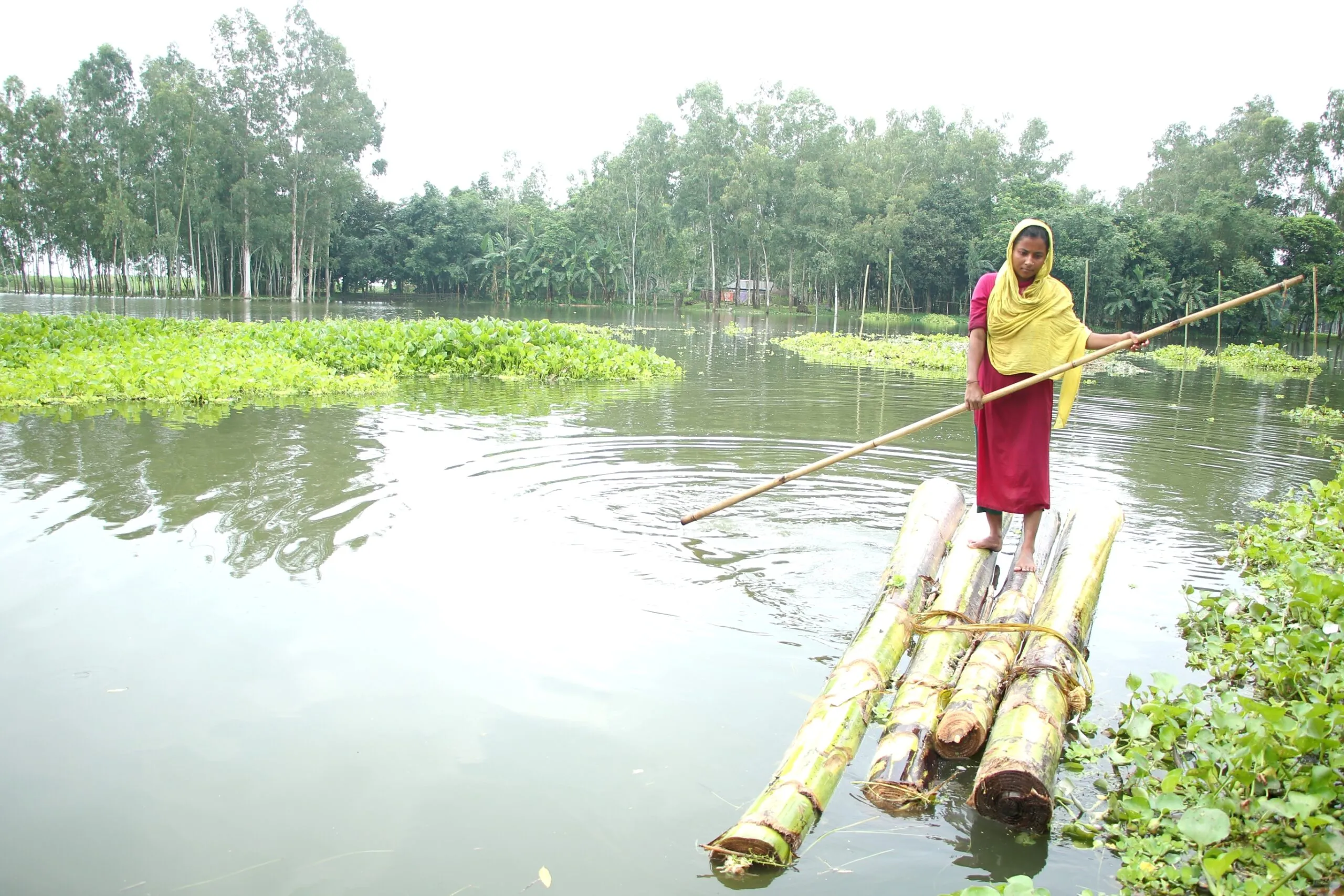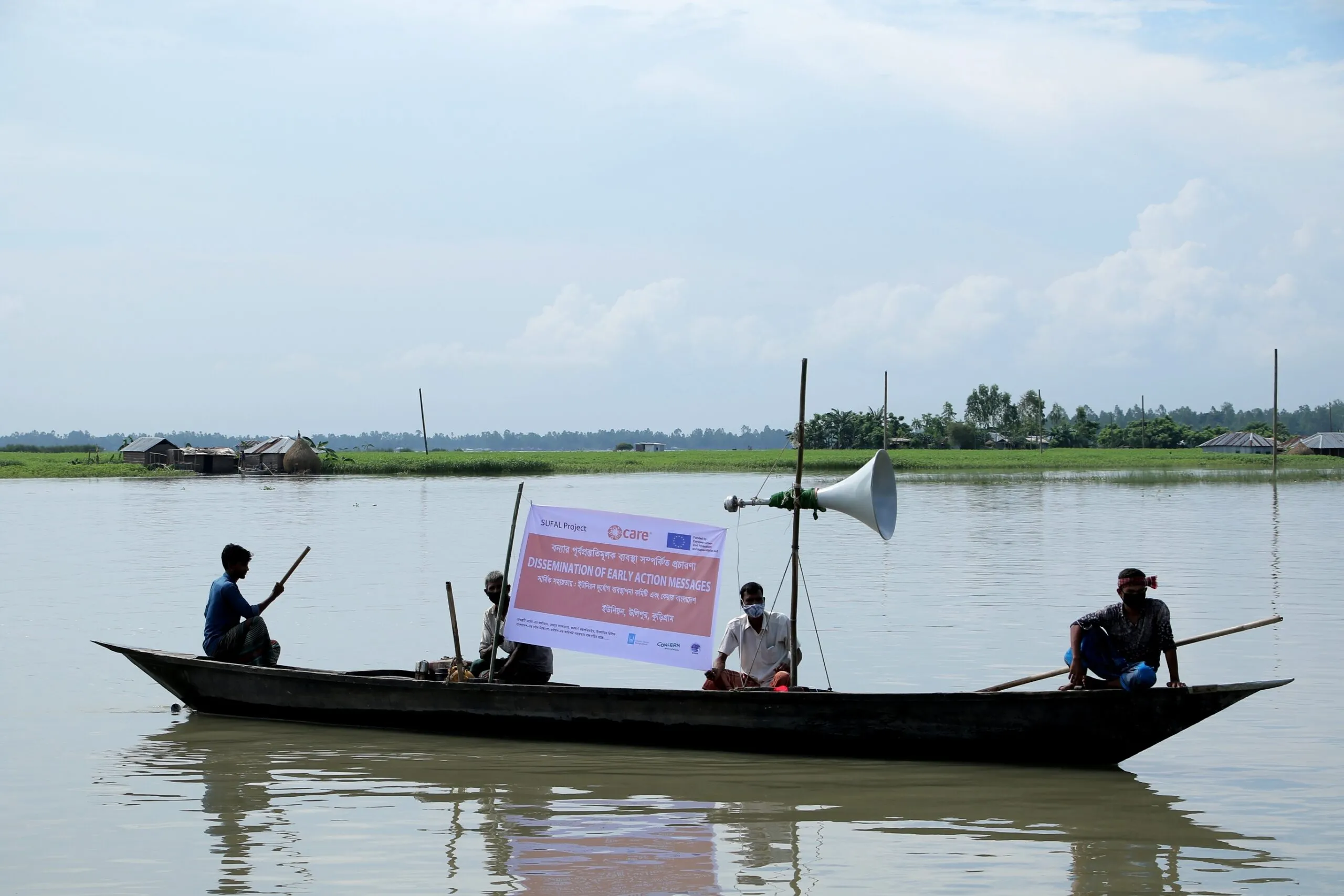But for some communities in northern Bangladesh, the story of the annual disaster is changing.
By using an early flood-warning system, people from three northern districts – Kurigram, Gaibandha, and Jamalpur – have managed to mitigate their losses.
The idea is simple.
Ahead of the 2020 floods, local people received flood-related early warning messages and to-do advisories. Local volunteers and community members helped spread the messages, using various innovative approaches — from pre-recorded mobile voice messages to local broadcasts from mosques and other religious centers to loudspeakers mounted on boats and bicycles. These messages about the flood’s timing, duration, and to-be-affected areas helped save lives and properties.
“Since 2019, I’ve been receiving mobile voice messages from SUFAL, which have consistently kept my family and friends informed about approaching floods,” says Parveen, a local community group member.
What is SUFAL?
SUFAL, an initiative that stands for “Scaling-Up Forecast-based Action and Learning,” was launched in 2019.
This community-based initiative SUFAL now works with 100,000 people across four northern districts to send these early messages and announcements to help local residents better prepare and take timely actions. CARE leads SUFAL with two other partners: Concern Worldwide and Regional Integrated Multi-Hazard Early Warning System. SUFAL, a consortium, is funded by the European Civil Protection and Humanitarian Aid Operations (ECHO).










